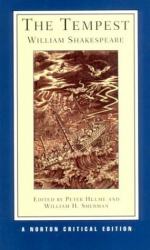|
This section contains 10,712 words (approx. 36 pages at 300 words per page) |

|
SOURCE: “‘My charms crack not’: The Alchemical Structure of The Tempest,” in Comparative Drama, Vol. 31, No. 4, Winter, 1997-98, pp. 538-70.
In the following essay, Simonds examines the significance of alchemy in The Tempest, arguing that through alchemy Prospero transforms and reforms the world.
In a previous essay I have discussed Shakespeare's Prospero as an Orpheus figure, as the persuasive rhetorician of mythology who leads mankind from barbarity to civilization through music and eloquence.1 That he might also be an alchemist in The Tempest, which is to say an adept in a science that was more often than not an important aspect of the Renaissance magician's art, should not surprise readers and spectators familiar with the kind of alchemical language we hear spoken throughout the play. One of the original argonauts engaged in the Quest of the Golden Fleece, Orpheus himself, was considered by adepts to be an early...
|
This section contains 10,712 words (approx. 36 pages at 300 words per page) |

|


